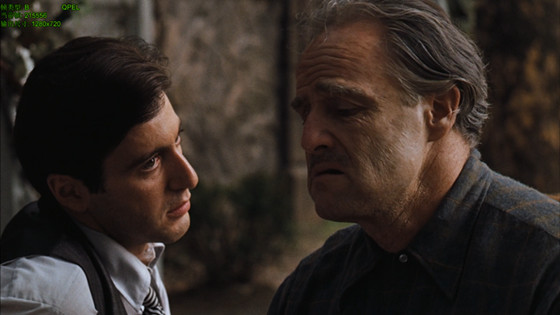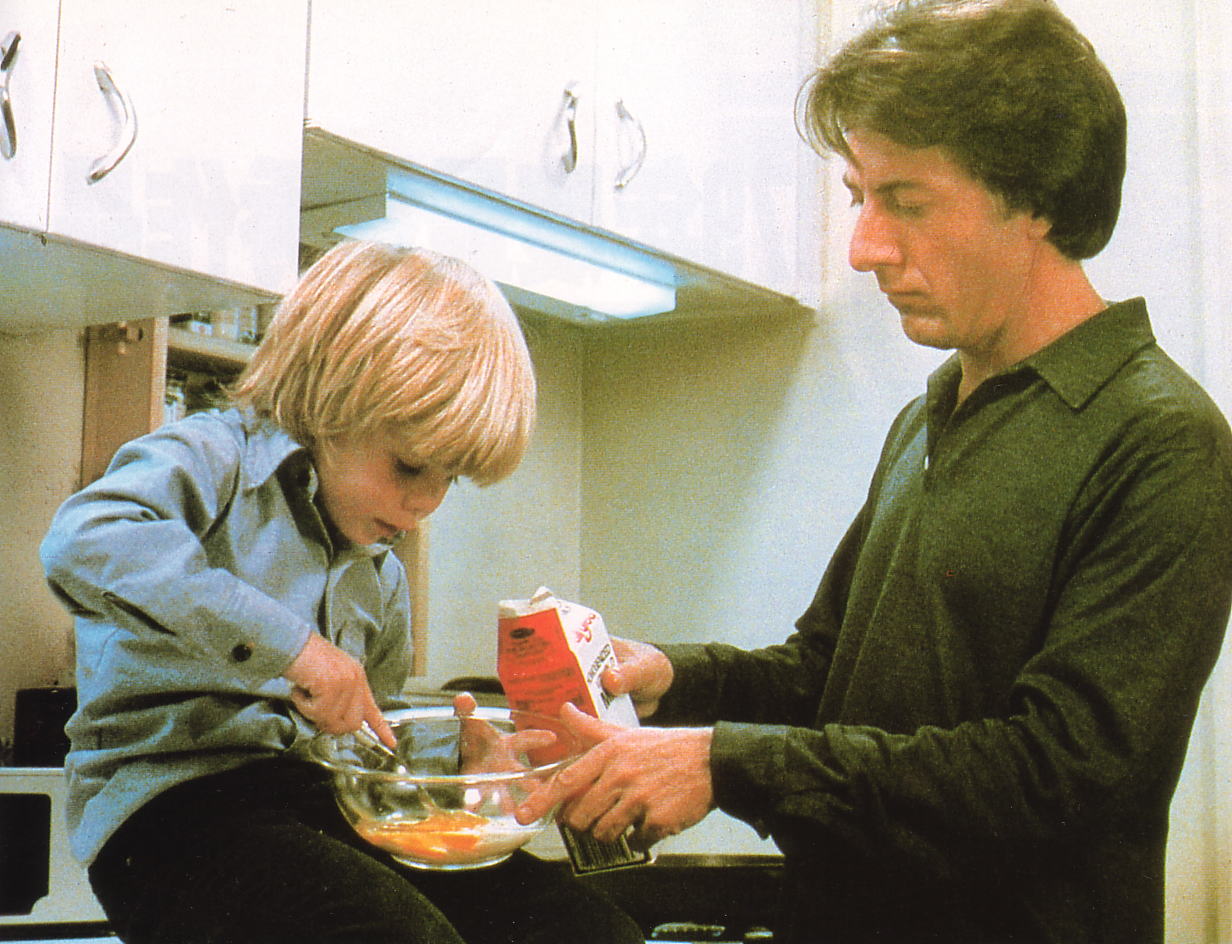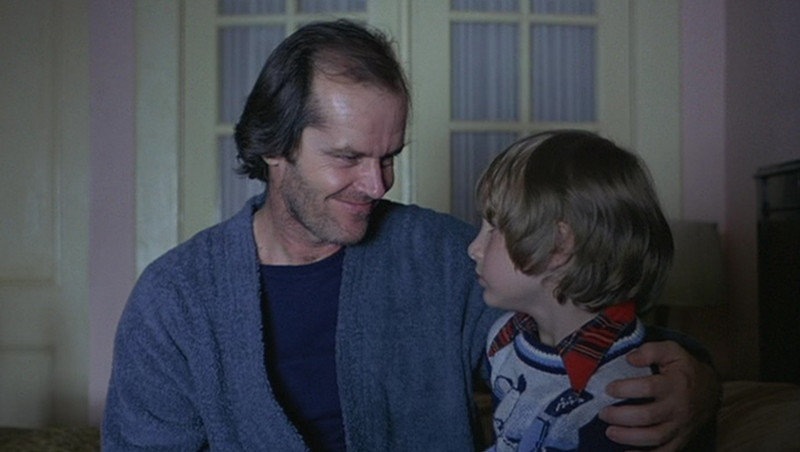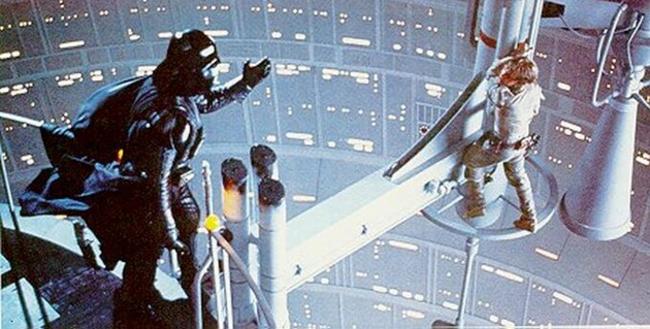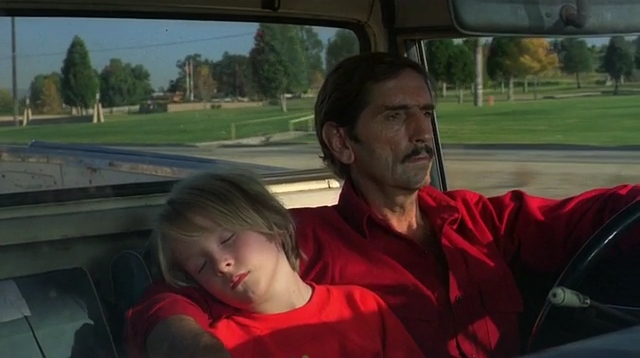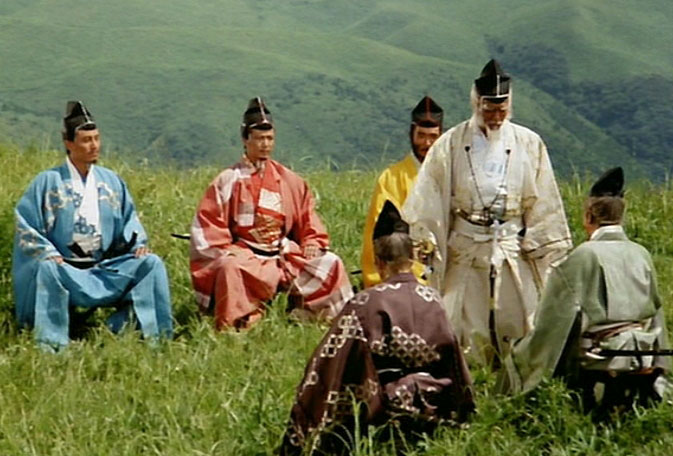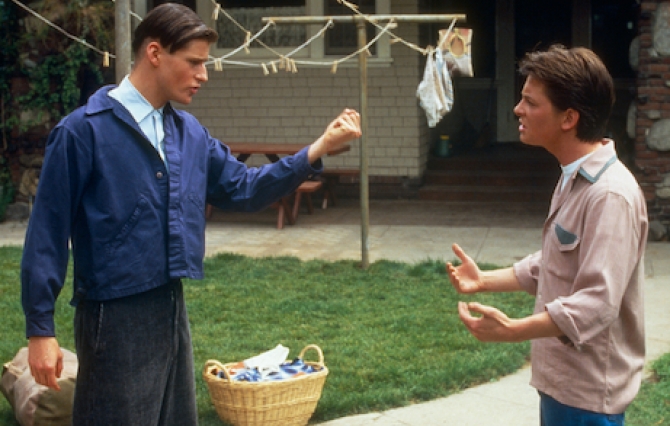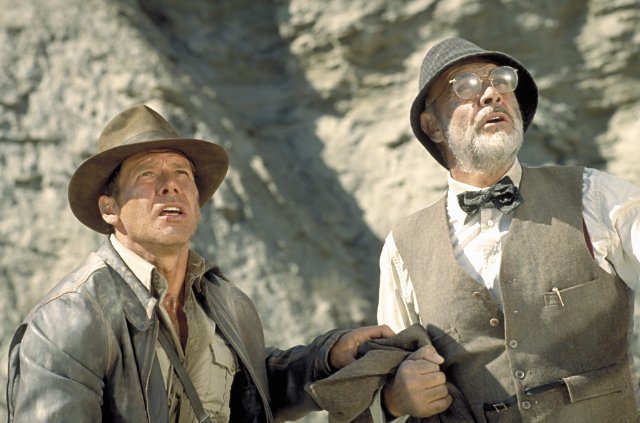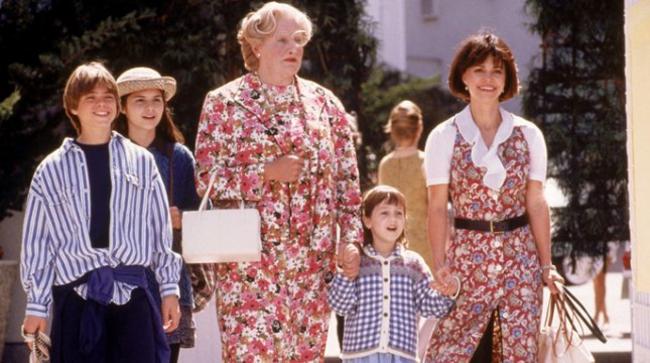9. The Godfather (1972)
A world away from Atticus Finch and the poor but proud world of genteel Depression era southern poverty he and his family inhabit is the milleau of Don Vito Corleone, lethally powerful head of a New York City based crime “family” in the post World War II era.
Though code named “godfather” to those adherent to him, Corleone is also literal father to a boisterous but potentially troubled brood of children. His daughter Connie (Talia Shire), whose wedding is being celebrated as the story begins, is unstable and drawn to violent men such as her father.
Younger son Sonny (James Caan) is a violent hot head in his own right and hits or shoots first and asks questions later. Slow witted, incompetent oldest son Fredo (John Cazale) is a total wash-out. The prize child is middle son Michael (Al Pacino).
The intelligent composed young man who is educated and served with distinction in the army during WWII is the one his father hopes will escape from the family’s shameful pattern (which is revealed to have been handed down to Vito by his father in Godfather II).
However, when Vito in attacked and nearly killed by rivals, only Michael is capable of exacting the required retribution, thus sealing his fate and condemning him to go down the same path as his father, something that will be tragically returned to him via his own family.
The Godfather films of, are course, the last words on films concerning organized crime but they are so much more. Looking at only the first one can see that this is a story of how generations impact one another and how family ties, especially between father and son can not only bind but capture and strangle. The other two films in the series amplify and refine this idea until it achieves the status of ancient Roman and Greek tragedy in a modern setting.
10. Kramer vs Kramer (1979)
In the 1970s long held ideas concerning gender and each family members place in the structure began to undergo serious change. In earlier times if a divorce took place (a shameful idea to many until way into the 1960s) then the children would automatically go with the mother with the father seeing them only on appointed weekends and the whole thing would be regarded as tragic.
Well, with the woman’s movement and the social changes the Vietnam and post-Vietnam era brought, those ideas started to look a bit antiquated. In this climate the Oscar winning Kramer Vs. Kramer became a huge and much discussed hit.
The plot doesn’t seem startling by today standards: advertising exec Ted Kramer (Dustin Hoffman) seems to love his job more than his family. The day he comes home with great professional news his wife Joanna (Meryl Streep) tells him that the marriage is over and she needs to go “find herself” (a big buzz term at the time).
In order to do this she’s leaving their five year old son Billy (Justin Henry) with Ted. Ted really barely knows the boy and is quite awkward with him at first but the two learn to live and grow together and find a profound love before Joanna returns a year and a half later to relate the news that she’s found herself and wants to take Billy back.
One of the chief virtues of this film is the realization that none of the principals is perfect. Ted probably wasn’t a good husband and Joanna probably took an easy out but they both love the child. The film’s big point is that Joanna isn’t necessarily the better parent just because she’s the mother.
Ted and Billy go through a lot together before Joanna returns and have formed a special bond because of this time. The ending has everyone both losing and winning. Though it may seem less groundbreaking now, the film is a well crafted (by writer-director Robert Benton) study of the roles parents, particularly, fathers, play in the family circle.
11. The Shining (1980)
It’s a sad fact that when dad starts to go down the drain the family often goes with him. Though author Stephen King often creates tales of fanciful horror, when he’s at his best he remembers to put in a human equation. Such was the case with his early novel, The Shining, which Stanley Kubrick chose to bring to life on film rather late in his career.
The story involves Jack Torrance (Jack Nicholson), a one-time teacher and aspiring writer who has seen one career and another potential career pretty much go down the drain due to alcoholism.
In an effort to not only get back on his own feet, but to also provide for loyally optimistic wife Wendy (Shelley Duvall) and son Danny (Danny Lloyd), he accepts a job as caretaker of a majestic resort hotel that closes in the winter due to the fact that the isolated spot is completely closed off from civilization when the snows start coming.
Too bad Jack decides to ignore the fact that this impressive structure houses a particularly bad history, including the murder of an entire family by a former caretaker, the family’s father! Young Danny, however, can’t ignore this since someone “lives” inside his head telling him things. This is due to the fact that the child is psychic and the voice in his head is telling him that there’s lots of bad stuff on its way once they all get inside the hotel.
There are lots of King-esque horror images on display thanks to Kubrick’s trademark perfectly composed, perfectly judged, measured style. Nicholson goes all out as he often could with the best of them. Duvall, a wonderfully quirky choice, is a fine damsel in distress that has the pluck to save herself and her child.
However, young Lloyd, a non-professional who never acted in another film, brings it all home as a child trying to make sense of chaos created by adults. Though the film has the usual genre thrills, the real scare lies in its exploration of a deeply embedded truth: when things start to go wrong and he gets mad, dad is one deeply scary dude.
12. Star Wars: Empire Strikes Back (1980)
When Star Wars premiered in 1977 all the critics and many fans noted how much it took from a variety of popular culture sources such as old sci-fi movies and serials. However, it took a few years for the new to wear off and deeper thinkers to analyze why this space epic caught on so big, past the special effects (notable indeed for the day).
As it turned out, the writers studied a greater number of sources than first noted, not the least of which was Joseph Campbell’s The Power of Myth. The use of this material came into focus with what many still believe to be the best film in the series: The Empire Strikes Back, the second of the films to be released.
This film seemed to promise more daring do but during a heated battle between hero Luke Skywalker (Mark Hamil) and Darth Vader (James Earl Jones’ voice coming out of a stunt double) its revealed by Vader that he, in fact, is Luke’s father! (And, as it happens, the father of Princess Leia, really Luke’s sister, though they knew none of it.)
Suddenly the whole enterprise started to reverberate with echoes of tales from classic Greek mythology such as Oedipus Rex or the Orestia. Here was a divided and embattled family spreading their internal conflicts over a much broader canvas.
This one scene has set the rest of the series, sequels, prequels, whatever, into motion. At the heart was a battle between father and son for domination of the landscape and possession of the present and future. Yes, the stuff of classic myth and drama.
13. Paris Texas (1984)
The noted German New Wave director Wim Wenders created his biggest U.S success with this highly emotional drama concerning a man’s redemption by way of repairing the damage he had inflicted on his family.
Travis Henderson (Harry Dean Stanton) is first seen wandering in the desert in a fruge-like state. It seems that he has been wandering for some four years while his brother Walt (Dean Stockwell) and sister-in-law Anne (Aurore Clement) have been caring for his abandoned young son Hunter (Hunter Carson, whose real father, L.M Kit Carson, wrote the script).
The boy’s mother Jane (Natassia Kinski) had vanished in the vicinity of Huston some time earlier but deposits money for the boy’s care on a regular basis. Being reunited with his son brings Travis back to reality but it also shows him that he must rectify the terrible situation which cause the frisson within the family, a situation facilitated by Travis himself.
Many who see this film remember the two extremely long scenes between Stanton and Kinski as Travis tracks Jane down to her job, working as a sexual “model”, talking to and posing for men behind a two way mirror (Travis can’t bring himself to actually face Jane while talking anonymously to her).
It becomes clear that the man knows that too much heartache has befallen the marriage from his own hands and that Jane, though still loving, is lost to him and that Hunter deserves a better parent than he is capable of now being. He arranges to put things as right as he can make them at tremendous cost to himself. This is the essence of a loving father.
14. Ran (1985)
What couldn’t the great Japanese director Akira Kurosawa do? Well, probably, he couldn’t make a bad film. Its hard to chose what might be his best film but this late career masterpiece is well in the running.
Kurosawa had used the works of the great English playwright Shakespeare as source material before but here he tackles a work rarely adapted for cinema: King Lear. Changing Lear’s three daughters (two nasty and ungrateful, one loving but too honest and soon disinherited) to sons (as befitting a patriarchal society) this film, whose title translates out to “chaos” is a stunning visual spectacle but also a profound and stirring drama.
As in Shakespeare, an aging ruler seeks to divide his kingdom among his children but foolishly listens only to the blandishments of his insincere older sons and mistakes the blunt but honest youngest son’s remarks for insults and banishes the young man. This sets the greedy remaining sons, one greatly urged on by his evil, scheming wife, to embark on a course which will result in war, misery and death for the main characters.
Since Kurosawa can’t truly use Shakespeare’s language, he exactingly visualizes the powerful theme of what happens when father doesn’t know best and how dad’s influence is so deep and far reaching that wrong decisions can result in permanent catastrophe.
15. Back to the Future (1985)
Time travel stories are always intriguing since these stories often center around a character seeing where it all went wrong in the past, or where it might have been changed, or what the future might be like depending on how it might be shaped.
While many such stories are dramatic or romantic, the huge 1985 hit Back to the Future takes a fun, but still profound look at the subject. In this film going back to the past principally involves a look at a family’s private history.
Marty McFly (Michael J. Fox) is a plucky, resourceful young man who has the bad fortune to come from, well, a family of losers. Mom Lorraine (Lea Thompson) is obviously the one from whom Marty inherited his can-do qualities but she is drifting into alcoholism and obesity under the burden of her life with Marty’s father Biff (Crispin Glover), a good hearted train wreak of a man who has never and will never make good.
It seems Lorraine started to fall for Biff when her father accidentally ran him down in a car accident (which was Biff’s fault). Their relationship looks to have been based on pity and neediness ever since.
Fate steps in when Marty’s employer, wacky scientist Dr. Brown (Christopher Lloyd) inadvertently sends Marty back in time to the period when his parents met.
Marty sees that he might change the life he leads in the present but it depends on altering his parents relationship, which depends on altering dad as a young man and changing him from a world class whiner and perpetual object of derision to someone who has a little pride in what he can win and accomplish for himself.
It’s played for laughs but the thought is worthy of Ozu: dad can be a disappointment as much as a son can be but while he’s still dad and worthy of love and respect , if he could just be upgraded a bit….
16. Indiana Jones and the Last Crusade (1989)
The Indiana Jones trilogy (original films, not sequels, prequels or fan-fics) all feature improbably dashing archaeologist cum adventurer Indiana Jones (Harrison Ford) in pursuit of some legendary and lost article (literally the Holy Grail in the case of the film under discussion)while fending off Nazi and/or other villainous adversaries while pursuing the same.
In the case of this film, Indiana must also contend with his most formidable nemesis, his father Dr. Henry Jones, Sr. (among the things to come out during the course of this film is the fact that Indiana is a nickname and comes from a most improbable source).
Dr. Jones, Sr, (played by Sean Connery, a wonderful match for Ford as father and son), was searching for the Grail independently of his son as their great thoughts seem to travel in the same directions. He has ended up in trouble with his son coming to the rescue, though the son lands in trouble, too.
While the two must concentrate on the challenge at hand its also obvious that they are being forced by nature to engage in the perpetual push-pull that many fathers and sons often find defining their relationship. The two are much alike and the son must have admired the father to have followed in his footsteps (though Dr. Jones, Sr. probably wouldn’t have had it any other way).
Father must be proud of all the things his son is and does, but the son will always be something of a kid to him and the last thing dad will ever do is show fawning admiration. The son respects the father but is also driven quite crazy by him. In short, they are too much alike. Ever try scraping two pieces of metal together?
Though all of this adds humor to the film, it also tells family truths and provides a heart to this entry somewhat lacking in the other films in the series. (A poignant footnote: in the flashback sequence which opens the film, young Indy is played by the late River Phoenix, who played the son of Ford’s character in The Mosquito Coast.)
17. Mrs. Doubtfire (1993)
One thing many modern era fathers must deal with that dads of earlier eras generally did not is the specter of divorce. Many dads now find themselves relegated to marginal place in their children’s lives thanks to legal division and limited visitation rights.
Add into the mix the messy complications if mom finds someone else with whom to share her life and dad’s place becomes problematic indeed. Many a dreary drama has chronicled this realistically life size tragedy but what may be the best take on it in the movies has come in the form of a comedy.
Daniel Hillyard (Robin Williams) is a free spirited animator, husband and father. Too free spirited, in fact, for wife Miranda (Sally Field) when he throws away his job over questionable principal and enables their three kids’ bad or errant behavior. When she divorces him he contrives to get back into his kids lives by manipulating Miranda into hiring a proper British nanny, “Mrs. Doubtfire”.
However, the good lady is really Daniel turned into the character by his make-up artist brother (Harvey Fierstein). Daniel actually knows nothing about housekeeping and realizes that he knew little about good parenting or being a husband as he ingeniously morphs into Mrs. Doubtfire for real. However trouble brews when a much too good to be true suitor (Pierce Brosnan) comes courting Miranda.
Yes, this is Tootsie with a wife and kids but just because it borrows from one fine film doesn’t mean that this film isn’t good on its own. The motor is Williams, a fine actor and an inspired clown, who keeps everything running and also gives the film a heart. Daniel, in the end, wanted to be in his family’s life and comes to know that being a parent means more than just being the kid’s best bud.
